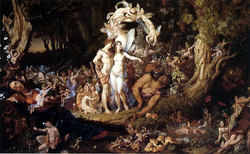
Spirits of Another Sort Workshop Journal #2.5 "How Now..."
There was a good deal of discussion surrounding the topic of casting and representation of Disabled Actors this week on the internet and social media. Perhaps some of you saw the recent article by playwright, Christopher Shinn that appeared in The Atlantic. If you missed it, I have reposted it here.
Dear Hollywood: Disability Is Not Just A Metaphor.
Shinn writes- As a playwright who underwent a below-the-knee amputation at age 38 during treatment for Ewing's sarcoma, I have lived as both an able-bodied and disabled person and artist. I understand that casting entails more than a search for diversity. But I've also come to believe that leaving out actual disabled people undercuts the power of works ostensibly about disability.
As stated in the article, according to The Alliance for Inclusion in the Arts, roughly 2,200 actors self identify as disabled. Great. My question is: Where are they?
Recently, I have written pretty extensively on the topic of casting, barriers to employment and what I see as The Apothetae's role in shifting the existing paradigm in the industry. Rather than re-hash it all here in this blog post, feel free to check out a previous article I wrote for Theatre Communications Group's Diversity & Inclusion blog salon curated by Jacqueline E. Lawton.
We Will Make That History Visible
Today, I'm writing you as a producer who is attempting to assemble a cast with very specific set of criteria, and I find myself running into the same conflicts that every producer faces when set with this task.
How many successful, established Disabled actors can you name? Contrary to prevailing perception, not all disabilities are the same. Just because 2,200 actors identify as "Disabled," doesn't mean they've had training, will conduct themselves professionally as part of an ensemble or possess any talent. In the original residency with The Shakespeare Society- a week long commitment (with pay)- I had trouble finding suitable, qualified disabled actors to fill four roles. I faced the same challenges casting the workshop.
With The Apothetae, I had an "if you build it they will come" mentality, but after having produced one show last year, several readings, a residency and now this workshop, if the core group of disabled actors in New York City known to me are unavailable, I'm the guy who finds himself the one who plowed under half his crop staring at an empty baseball field.
The first person I approached for the role of Oberon was Mat Fraser. Mat is a friend of mine and someone I have wanted to work with for a long time. A London native, now living in New York City, Mat is a burlesque performer who was born a thalidomide baby. He would have been awesome in the role but he was unavailable due to schedule conflicts. He recently booked a role on Ryan Murphy's, American Horror Story: Freak Show.
David Harrell is an amputee actor whom I have worked with on several occasions with Theatre Breaking Through Barriers. He is also a Disability Advocate at The Alliance for Inclusion In The Arts (AIA). David was going to be out of town performing his award winning, one-person show, The Boy Who Would Be Captain Hook, in The Republic of Estonia. Way out of town. Unavailable.
At this point I had run out of clear options. I could not think of another male actor in New York City who fit my initial criteria. When I asked David if he could recommend actors from AIA's files, he said there weren't any that had experience with classical text. Both Mat and David were working. This is great and a testament to their skills, talent and dedication. The reality for me as producer however is, if two actors are unavailable, I'm fuc*ed.
Why aren't there more actors with disabilities located in New York City? Is it the high cost of living? Major accessibility issues? Maybe it's easier to be a big fish in a smaller pond? Perhaps. Why would young people with Disabilites choose to enter into a field that has made it startlingly clear that there's no place for them and very little chance of success? To be able to produce the plays and projects I want to do, I need to find a bigger pool of actors to pull from. If they're not in New York I have to work to investigate and develop actors locally. I also have to broaden my scope by thinking regionally and nationally. Of course, bringing in actors from out of town increases costs and I need to manage an operations budget that doesn't break the bank.
I began to explore other options and change some of my considerations for the roles. Sara, works with a colleague who is in a relationship with a recent amputee- a former actor, now a construction contractor, who was looking to get back in the game since his injury.
I connected with this gentleman over the phone and he seemed very interested in the project, but had a few concerns. He lived in Duchess County for one- 75 minutes outside of the city- July/August was his busy season and he wasn't sure what his work schedule would be like. I assured him that the time commitment was limited, that we would rehearse in the evenings and we could work with his schedule. In addition however, his father was recovering from recent bypass surgery. Try as we might, it just wasn't going to work this time. He's on my radar now though, and perhaps there is a future project we can collaborate on.
I explored the idea of gender-bending the roles of Oberon/Theseus. Pamela Sabaugh is another actor (visually impaired) whom I had met through Theatre Breaking Through Barriers, but she was going to be out of town and unavailable.
Conversations began about potentially casting an able-bodied actor in the role...
It was Hail Mary time. I contacted a friend of mine I went to school with, Will Dickerson. Will was a year ahead of me at Boston University. He is a phenomenal actor with cerebral palsy now living in Bozeman, Montana. On a whim, I invited him via Facebook message not expecting him to accept the offer. Lo and behold, he did! He will be joining us in August and I am looking forward to his arrival and participation in the piece.
Since we started, we have had to find a new director, replace our Helena and find a new Starveling the Tailor. I am happy to say that the cast of "Spirits of Another Sort" contains four actors with cerebral palsy, an actor with a spinal chord injury who uses a wheelchair and four actors with various intellectual disabilities. Within that physical and neuro-diversity, is also represented the Latino and African American population. Regan is joining us from Los Angeles and Will from Montana. This wasn't necessarily planned, it just happened. Actually, it didn't just happen. Actually, it was a pain in the ass. It was work worth doing however, because I feel we have assembled an incredible ensemble of actors.
Now, all we have to do is learn our lines...
-Gregg Mozgala, Artistic Director
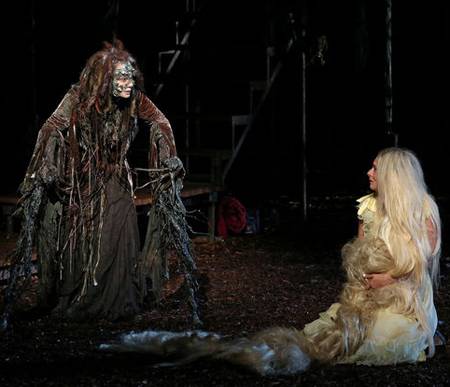
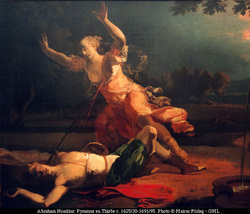
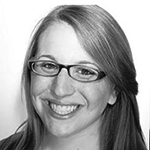
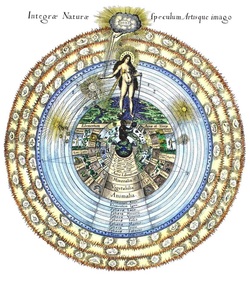
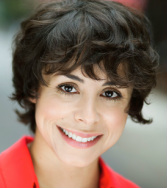
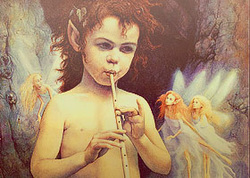
 RSS Feed
RSS Feed